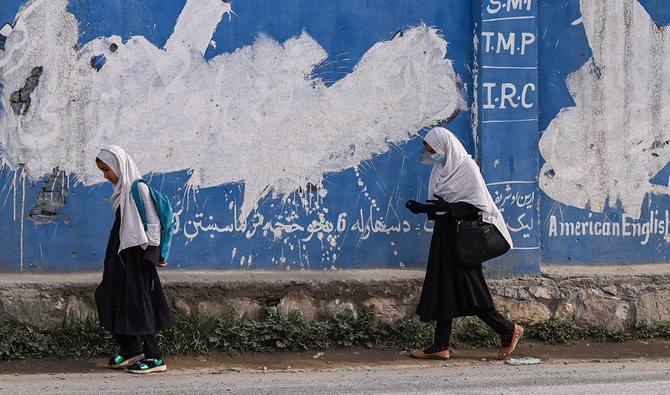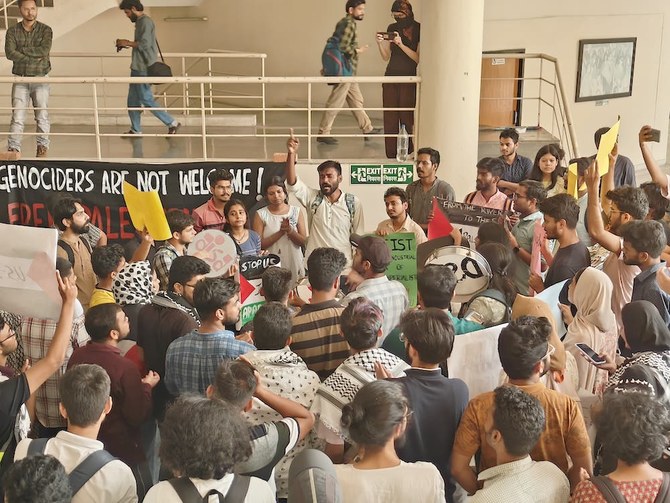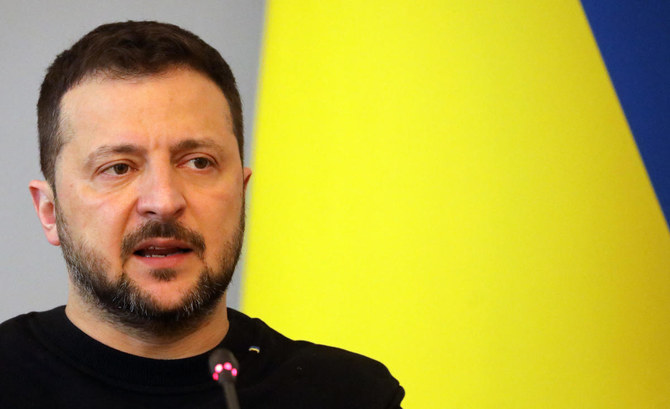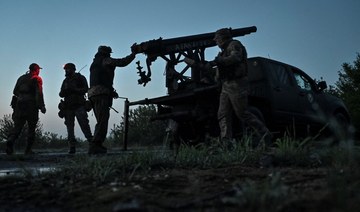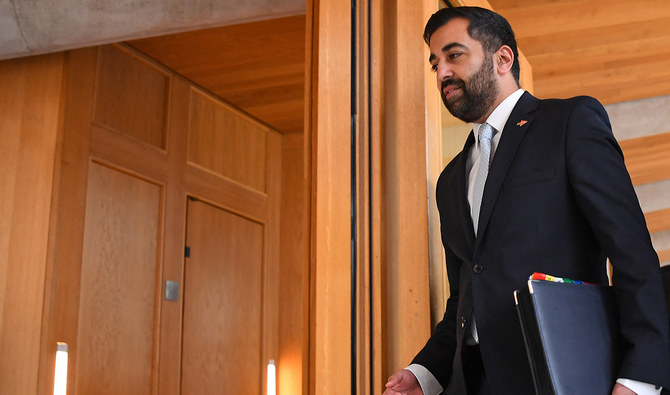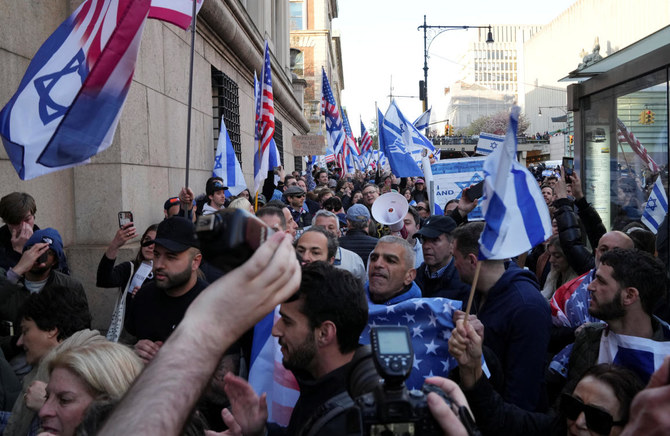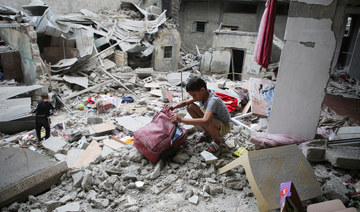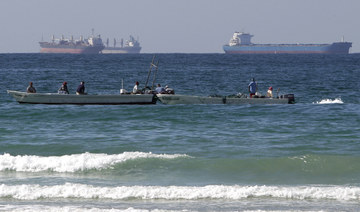President Vladimir Putin basked in an election victory that was never in doubt, as officials said Monday that he had won his fifth term with a record number of votes, underlining the Russian leader’s total control of the country’s political system.
After facing only token challengers and harshly suppressing opposition voices, Putin was set to extend his nearly quarter-century rule for six more years. Even with little margin for protest, Russians crowded outside polling stations at noon on Sunday, the last day of the election, apparently heeding an opposition call to express their displeasure with the president.
Putin has led Russia as president or prime minister since December 1999, a tenure marked by international military aggression and an increasing intolerance for dissent.
Early Monday, Putin hailed overwhelming preliminary results as an indication of “trust” and “hope” in him — while critics saw them as another reflection of the preordained nature of the election.
“Of course, we have lots of tasks ahead. But I want to make it clear for everyone: When we were consolidated, no one has ever managed to frighten us, to suppress our will and our self-conscience. They failed in the past and they will fail in the future,” Putin said at a meeting with his campaign staff after polls closed.
Any public criticism of Putin or his war in Ukraine has been stifled. Independent media have been crippled. His fiercest political foe, Alexei Navalny, died in an Arctic prison last month, and other critics are either in jail or in exile.
Beyond the fact that voters had virtually no choice, independent monitoring of the election was extremely limited.
Russia’s Central Election Commission said Monday that with nearly 100 percent of all precincts counted, Putin got 87.29 percent of the vote. Central Election Commission chief Ella Pamfilova said that nearly 76 million voters cast their ballots for Putin, his highest vote tally ever.
North Korean leader Kim Jong Un and the presidents of Bolivia, Cuba, Honduras, Nicaragua and Venezuela quickly congratulated Putin on his victory, as did the leaders of ex-Soviet nations Belarus, Tajikistan and Uzbekistan. Meanwhile, the West dismissed the vote as a sham.
British Foreign Secretary David Cameron wrote on X, formerly known as Twitter: “This is not what free and fair elections look like.”
In the tightly controlled environment, Navalny’s associates urged those unhappy with Putin or the war to go to the polls at noon on Sunday — and lines outside a number of polling stations both inside Russia and at its embassies around the world appeared to swell at that time.
Among those heeding call was Yulia Navalnaya, Navalny’s widow, who spent more than five hours in the line at the Russian Embassy in Berlin. She told reporters that she wrote her late husband’s name on her ballot.
Asked whether she had a message for Putin, Navalnaya replied: “Please stop asking for messages from me or from somebody for Mr. Putin. There could be no negotiations and nothing with Mr. Putin, because he’s a killer, he’s a gangster.”
But Putin brushed off the effectiveness of the apparent protest.
“There were calls to come vote at noon. And this was supposed to be a manifestation of opposition. Well, if there were calls to come vote, then ... I praise this,” he said at a news conference after polls closed.
Putin referenced Navalny by name for the first time ever at the news conference, declaring that he was ready to release him in a swap for unidentified inmates in Western custody just days before the opposition leader’s death.
He rejected Western criticism of the vote and tried to turn the tables at the West, charging that the four criminal cases against Republican candidate Donald Trump were a use of the judiciary for political aims and describing denigrating democracy in the US as a “catastrophe.” “The whole world is laughing at it,” he said.
Some Russians waiting to vote in Moscow and St. Petersburg told The Associated Press that they were taking part in the protest, but it wasn’t possible to confirm whether all of those in line were doing so.
A voter in Moscow, who identified himself only as Vadim, said he hoped for change, but added that “unfortunately, it’s unlikely.” Like others, he didn’t give his full name because of security concerns.
Meanwhile, supporters of Navalny streamed to his grave in Moscow, some bringing ballots with his name written on them.
Meduza, Russia’s biggest independent news outlet, published photos of ballots it received from their readers, with “killer” inscribed on one and “The Hague awaits you” on another. The latter refers to an arrest warrant for Putin on war crimes charges from the International Criminal Court.
Some people told the AP that they were happy to vote for Putin — unsurprising in a country where state TV airs a drumbeat of praise for the Russian leader and voicing any other opinion is risky.
Dmitry Sergienko, who cast his ballot in Moscow, said, “I am happy with everything and want everything to continue as it is now.”
Voting took place over three days at polling stations across the vast country, in illegally annexed regions of Ukraine and online.
Several people were arrested, including in Moscow and St. Petersburg, after they tried to start fires or set off explosives at polling stations while others were detained for throwing green antiseptic or ink into ballot boxes.
Stanislav Andreychuk, co-chair of the Golos independent election watchdog, said Russians were searched when entering polling stations, there were attempts to check filled-out ballots before they were cast, and one report said police demanded a ballot box be opened to remove a ballot.
That left little room for people to express themselves. Still, huge lines formed around noon outside diplomatic missions in London, Berlin, Paris and other cities with large Russian communities, many of whom left home after Putin’s invasion of Ukraine.
“If we have some option to protest I think it’s important to utilize any opportunity,” said 23-year-old Tatiana, who was voting in the Estonian capital of Tallinn and said she came to take part in the protest.




